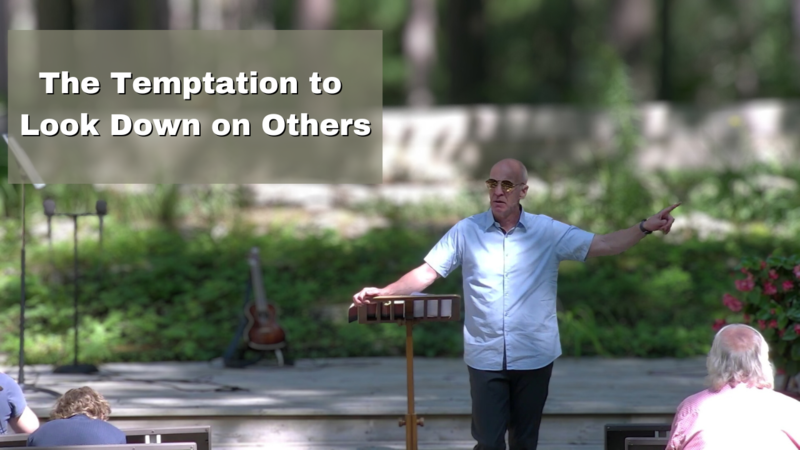
In Jesus' parable of the Pharisee and the tax collector, we're challenged to examine our approach to prayer and our understanding of God's character. The story, found in Luke 18, serves as a mirror, reflecting our own tendencies towards self-righteousness and judgment of others. We're reminded that true righteousness isn't about comparing ourselves favorably to others or listing our good deeds, but about humbly recognizing our need for God's mercy. The tax collector's simple prayer, 'God, have mercy on me, a sinner,' becomes a model for us all. This parable invites us to shift our focus from our own perceived goodness to God's abundant mercy, encouraging a transformative approach to our relationship with both God and others.
How might our tendency to compare ourselves to others impact our relationship with God and our spiritual growth?
In what ways do we sometimes fall into the trap of being 'confident in our own righteousness' like the Pharisee in the parable?
How can we cultivate genuine humility in our prayer life without falling into false modesty or self-deprecation?
What does the tax collector's simple prayer reveal about the nature of God and His response to our honesty and vulnerability?
How might regularly praying the 'Jesus Prayer' (Lord Jesus Christ, have mercy on me, a sinner) impact our daily spiritual walk?
In what ways do we sometimes 'look down on everyone else' in our church communities or wider society, and how can we combat this tendency?
How does understanding God as a 'God of immense mercy' change our approach to confession and repentance?
What role does the Holy Spirit play in helping us achieve a balanced and honest self-assessment before God?
How can we avoid the trap of turning spiritual lessons (like this parable) into opportunities for self-righteousness?
In what ways might our religious practices or good deeds become stumbling blocks in our relationship with God if we're not careful?

.png)